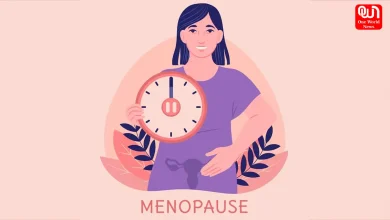Too much protein can be bad for your heart health! Stop now!
What is the impact of protein on your heart health? Let's find out!
Consuming excessive amounts of protein, particularly from sources high in saturated fats, can potentially have negative effects on heart health.
While protein is essential for muscle repair, immune function, and overall health, it’s important to maintain a balanced diet and be mindful of the sources and quantities of protein consumed.
Impact on Heart Health:
1. High Saturated Fat Content:
Many animal-based protein sources, such as red meat, processed meats, and full-fat dairy products, are high in saturated fats. Diets high in saturated fats have been linked to an increased risk of cardiovascular diseases, including heart disease and stroke. Consuming excessive amounts of these protein sources can raise levels of LDL cholesterol (commonly known as “bad” cholesterol) in the blood, contributing to the development of arterial plaque and narrowing of blood vessels.
2. Potential for Weight Gain:
Protein-rich diets, particularly those high in animal protein, may contribute to weight gain if consumed in excess. Excess calories from protein can be stored as fat in the body, leading to weight gain and an increased risk of obesity-related health conditions, including heart disease, type 2 diabetes, and hypertension.
3. Impact on Blood Pressure:
Some research suggests that high-protein diets, especially those rich in animal protein, may elevate blood pressure levels. Elevated blood pressure is a risk factor for heart disease and stroke. While the exact mechanisms underlying this association are not fully understood, it is believed that certain components of animal protein may contribute to increased blood pressure levels.
Read more:- 5 Amazing Health Advantages Of Drinking Fig Water Everyday On An Empty Stomach
Considerations for Heart-Healthy Eating:
1. Choose Lean Protein Sources:
Opt for lean protein sources such as poultry, fish, legumes, tofu, and low-fat dairy products. These options are lower in saturated fats and can provide essential nutrients without the negative impact on heart health associated with excessive consumption of red and processed meats.
We’re now on WhatsApp. Click to join.
2. Balance Protein Intake:
Aim for a balanced diet that includes a variety of nutrient-rich foods, including fruits, vegetables, whole grains, and healthy fats. Balance your protein intake with carbohydrates and fats to ensure you’re meeting your nutritional needs while minimizing the risk of heart disease and other health issues.
3. Limit Processed Meats:
Processed meats such as bacon, sausage, and deli meats are high in saturated fats, sodium, and preservatives. Limit your intake of these foods and opt for healthier alternatives whenever possible.
4. Monitor Portion Sizes:
Be mindful of portion sizes when consuming protein-rich foods. Focus on appropriate serving sizes to avoid overconsumption and excessive calorie intake.
Read more:- Milk Mastery: The best time to drink milk every day, according to a nutritionist
While protein is an essential nutrient for overall health, consuming excessive amounts, particularly from sources high in saturated fats, can potentially have negative effects on heart health. By choosing lean protein sources, balancing your diet, and monitoring portion sizes, you can support heart health while still meeting your nutritional needs. As always, it’s essential to consult with a healthcare professional or registered dietitian for personalized dietary recommendations tailored to your individual health goals and concerns.
Like this post?
Register at One World News to never miss out on videos, celeb interviews, and best reads.








